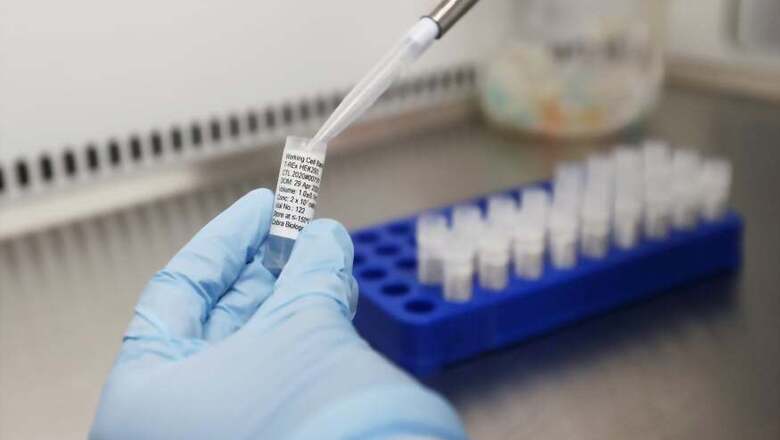
views
A vaccine for COVID-19 cannot be expected before early next year as the process involves a lot of clinical trials and data testing, a top official of CSIR-CCMB said on Saturday, a day after ICMR said it aims to launch the world's first COVID-19 vaccine by August 15.
Rakesh K Mishra, Director of CSIR-Centre for Cellular and Molecular Biology, said the ICMR's letter in this regard may be for internal consumption and aimed at putting pressure on hospitals to get ready for clinical human trials.
"If everything goes absolutely really like a textbook plan, then we are talking about six to eight months to think of something that now we have a vaccine. Because you have to test in large numbers. It is not like a drug that if somebody is sick you give and see if it is cured or not," Mishra told PTI when asked about the possibility of the vaccine becoming ready by August 15.
The Indian Council of Medical Research on Friday wrote to select medical institutions and hospitals to fast-track clinical trial approvals for the coronavirus vaccine candidate Covaxin, being developed in collaboration with Bharat Biotech, a city-based vaccine maker, which it plans to release on August 15.
"Actually vaccine development takes many years, but you are in very desperate conditions. Maybe by the beginning of the next year if the vaccine clicks, we can expect. Not before that. Before that (it is) very unlikely as far as I understand," Mishra said.
He said thousands of people are given vaccine during clinical trials and one has to wait for the data and results, which normally takes months.
To a query, he said CCMB is currently doing 400-500 COVID-19 tests every day and had sent proposals to the ICMR for undertaking a new way of testing, which will consume less time and manpower.
"We are doing a lot of tests... 400 to 500 tests every day. But there are limitations that you cannot go beyond certain numbers. But we had proposed to the ICMR a new way of testing. It is a shorter method. It can be done in a safer way and will take half the time. It is much less expensive and less human resources required. We are waiting for the ICMR to give an advisory on that," he said.



















Comments
0 comment